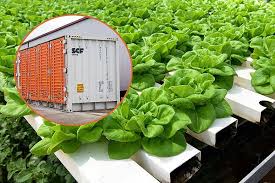
Breaking News
 IT'S OVER - I Have Proof: Fed Opened $24B Credit Line to 3 Banks (Jan 2nd Emergency Emails Leak
IT'S OVER - I Have Proof: Fed Opened $24B Credit Line to 3 Banks (Jan 2nd Emergency Emails Leak
 The Poo Doctor: This Gut Mistake Leads To Cancer. The Cheap Spice That Helps Repair...
The Poo Doctor: This Gut Mistake Leads To Cancer. The Cheap Spice That Helps Repair...
 Vaccine ingredients Exposed - Children's Health Defence "CHD"
Vaccine ingredients Exposed - Children's Health Defence "CHD"
Top Tech News
 Laser weapons go mobile on US Army small vehicles
Laser weapons go mobile on US Army small vehicles
 EngineAI T800: Born to Disrupt! #EngineAI #robotics #newtechnology #newproduct
EngineAI T800: Born to Disrupt! #EngineAI #robotics #newtechnology #newproduct
 This Silicon Anode Breakthrough Could Mark A Turning Point For EV Batteries [Update]
This Silicon Anode Breakthrough Could Mark A Turning Point For EV Batteries [Update]
 Travel gadget promises to dry and iron your clothes – totally hands-free
Travel gadget promises to dry and iron your clothes – totally hands-free
 Perfect Aircrete, Kitchen Ingredients.
Perfect Aircrete, Kitchen Ingredients.
 Futuristic pixel-raising display lets you feel what's onscreen
Futuristic pixel-raising display lets you feel what's onscreen
 Cutting-Edge Facility Generates Pure Water and Hydrogen Fuel from Seawater for Mere Pennies
Cutting-Edge Facility Generates Pure Water and Hydrogen Fuel from Seawater for Mere Pennies
 This tiny dev board is packed with features for ambitious makers
This tiny dev board is packed with features for ambitious makers
 Scientists Discover Gel to Regrow Tooth Enamel
Scientists Discover Gel to Regrow Tooth Enamel
 Vitamin C and Dandelion Root Killing Cancer Cells -- as Former CDC Director Calls for COVID-19...
Vitamin C and Dandelion Root Killing Cancer Cells -- as Former CDC Director Calls for COVID-19...
Kimbal Musk's "Urban Farming Accelerator" Grows 2 Acres of Food in a Single Shipping C

The demand for real, local food is growing as more people become aware that agribusiness corporations such as Monsanto, along with lobbying groups like the Grocery Manufacturers Association, have a frightening grip on the nation's food system.
"Big Food" would rather everyone continue eating highly processed, mass-produced substances packed with genetically modified fillers and artificial ingredients.
The surge in organic and non-GMO sales is a heartening reminder that the power of the purse can make a difference. Farmers markets, where people congregate to buy real, nutritious food and meet the farmer who produces that food, have grown all over the country.
But the availability of real, local food is limited in urban areas, where communities often experience "food deserts" where the only things available are the unhealthiest processed substances of the Big Food industry.
Kimbal Musk – brother of the innovating entrepreneur Elon Musk – and his colleague Tobias Peggs are looking to change that by bringing real food production into the heart of urban areas.
This fall they are launching Square Roots, an "urban farming accelerator" centered on the use of modular shipping containers to grow the equivalent of two acres of food year-round. It's not just a box, though, but an initiative to join the energy of youth with healthy, sustainable solutions to food production.
"Square Roots builds campuses of climate-controlled, indoor, hydroponic vertical farms, right in the hearts of our biggest cities. We train young entrepreneurs to grow fresh, local food all year round. And we empower them to create forward-thinking, responsible businesses that strengthen their communities through real food.
All this means year-round heaven for local foodies. From farmer's market conversations to farm-campus parties, from speaker series' to digital content, Square Roots creates opportunities for everyone to dig into local food – even if there's two feet of snow on the ground."
With technology and urbanization, people have unfortunately been losing touch with the basic knowledge of where food comes from and how it is grown and made – which makes the system ripe for abuse by corporate interests and government lackeys.

 "Boots on the Ground"
"Boots on the Ground"


